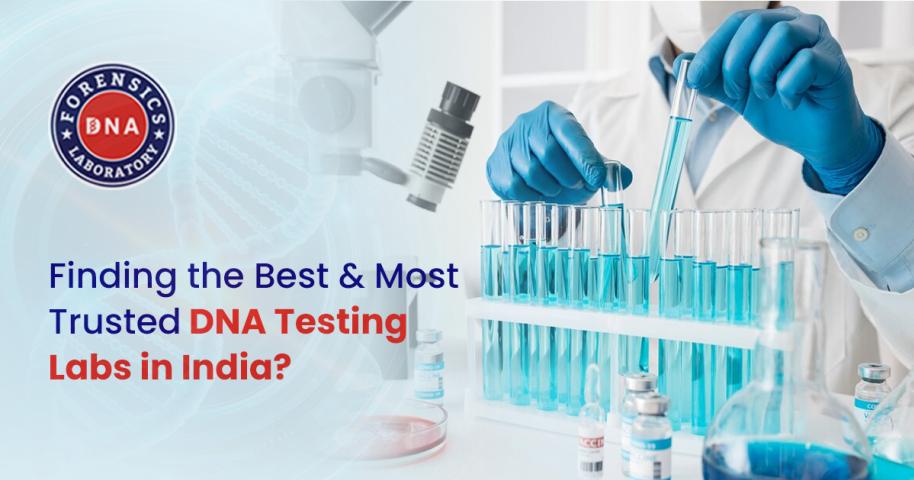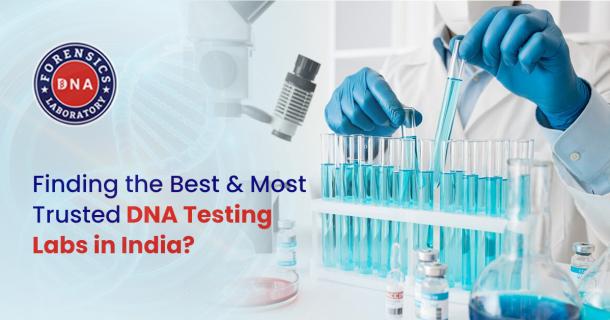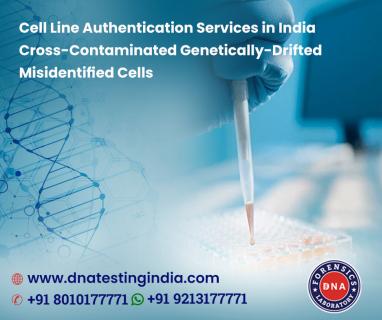DNA testing has become a transformative tool with applications ranging from relationship confirmation and ancestry tracing to organ transplantation and immigration. This innovation is based on analyzing the genetic material, that is, the deoxyribonucleic acid or DNA. It provides detailed genetic information, offering insights into health risks, ancestry, and identity. Advances in DNA sequencing technologies have improved the accuracy and accessibility of testing, expanding its applications beyond traditional uses. This article explores the diverse impacts of DNA testing, focusing on its implications for personalized healthcare, forensic science, and family history research.
What is the Methodology Behind DNA Testing?
The following is a stepwise representation of the methodology/technique involved in DNA testing:
- Collection of Sample: A biological sample, such as blood, saliva, or tissue, is obtained from the individual.
- Extraction of DNA: The sample is processed to extract DNA by breaking down cellular membranes using a combination of physical and chemical methods.
- Amplification: Polymerase chain reaction (PCR) is employed to selectively replicate specific DNA segments, increasing their concentration to facilitate detailed examination.
- Analysis: The DNA is analyzed through sequencing or genotyping. Sequencing determines the precise order of nucleotides in a DNA segment, while genotyping identifies specific genetic variants or markers.
- Data Comparison: For some cases, the generated data are compared to known genetic databases to identify potential genetic traits related to health risks, ancestral origin, etc.
- Interpretation of Results: The results are interpreted based on the DNA profile obtained and the statistical probabilities of the relationship. At times, the profiles are matched against established genetic databases, like in ancestry and BRCA gene testing for ovarian & breast cancers.
This stepwise methodology ensures that DNA testing is accurate and reliable and provides valuable insights into an individual's genetic makeup.
What Are Some Common Applications of DNA Testing?
DNA testing encompasses various applications, each serving distinct purposes.
Relationship DNA Testing:
It is used to confirm biological relationships between individuals. Various types include:
- Paternity DNA Test: Determines if an individual is the biological father of a child.
- Maternity DNA Test: Verifies if an individual is the biological mother of a child.
- Siblingship Testing: Assesses the likelihood of individuals being full or half-siblings.
- Grandparentage Testing: Establishes if individuals are biological grandparents to a child.
- Legal DNA Test: It is used in court cases to provide evidence for legal disputes such as custody battles and inheritance claims, following strict chain-of-custody procedures to ensure result validity. DNA samples are collected either in the courtroom or in the presence of a court-appointed representative, and reports are sent directly to the honorable judge.
- Organ Transplant DNA Test: As specified in the Transplantation of Human Organs Act (THOA) 2014, it is necessary to verify the biological relationship between the live donor and recipient. It ensures successful transplantation outcomes.
- Immigration DNA Test: It helps to verify familial relationships for immigration purposes, ensuring that the sponsor and the applicant meet the requirements for family reunification visas.
- Cell Line Authentication Test: Cell Line Authentication is used to confirm the identity and purity of cell lines used in research, preventing contamination and ensuring reliable scientific results.
Ancestry DNA Testing:
- Paternal Lineage Test: Traces the paternal ancestry and the location of Y-haplogroup through Y-DNA analysis. The YDNA is inherited by a son from the father, so females need to give one of their male-family member's DNA sample for this test.
- Maternal Lineage Test: Explores the maternal ancestry through mitochondrial DNA and also locates the mtDNA halpogroup.
- GPS Origins Test: Offers a detailed geographical breakdown of an individual's ancestral origins and traces the ancestral origin thousands of years back. It can also give precise data about the last three major migrations of the ancestors of the tested person.
These diverse applications underscore the versatility and significance of DNA testing in various fields.
Best Place to Get DNA Testing Services in India and Abroad
DNA Forensics Laboratory Pvt. Ltd. provides accredited peace of mind DNA tests and accurate and reliable DNA testing services for other purposes.
They are the only private DNA testing company in India doing legal DNA tests for honorable courts of law. Moreover, they provide NABL-accredited Organ Transplant DNA Tests with Form-5.
With 400+ local and international collection centers they offer the widest accessibility of accurate and dependable DNA testing services all across the globe.




